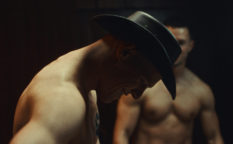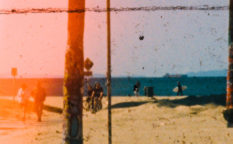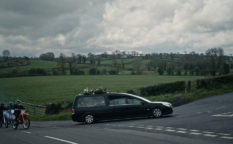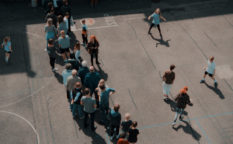Review: My Dear Spies (2020)
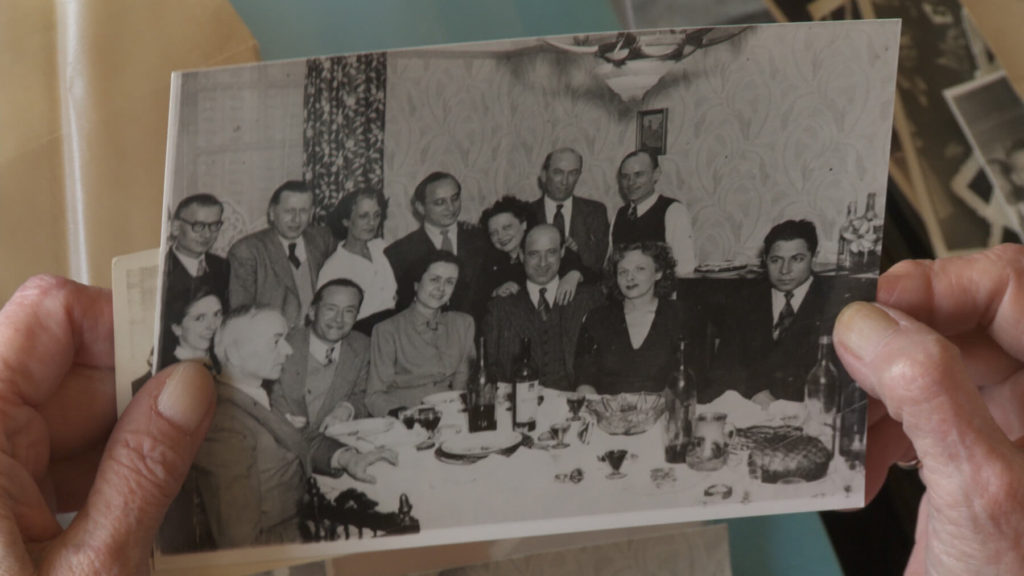
Family histories tend to be an interesting topic, especially as the micro-environment where some of the “big” historical events echo stronger. They can also be unpleasant, even dangerous obsessions and topics of research because no one really knows what will be unearthed over the course of the quest. In his long-prepared documentary My Dear Spies, the Russian-French filmmaker Vladimir Léon tries to solve the mystery that has been bothering him since childhood: whether his Russian emigrés grandparents Constantin (dit Kostia) and Raissa (dit Lilly) Kotchetkov actually were Soviet spies, for what they were expelled from France in 1948.
The documentary premiered at this year’s edition of Visions du réel and is currently playing at Doclisboa’s Movements section. Its fairly straightforward style and topic of the interwoven personal and political histories make it a safe investment for television and documentary platforms once the festival circuit is over.
It all begins with an old suitcase Vladimir, assuming the role of the narrator and our principal guide, finds in the attic of his late mother’s house. It has been two years since her death and the time seems right to try to answer the long-standing questions. The suitcase is full of documents in Russian and French, providing even more questions about Kostia’s and Lilly’s ties with the Soviet immigration circles in both pre- and post-war times. Apparently, they were in contact with the Soviets regarding the Spanish Civil War, Kostia worked at Renault factory in Boulogne, which was considered to be a “hotbed of spies”, while Lilly ran an organization that provided aid to the Soviet citizens in Paris, and her ties with the mysterious double agent Dorian during the war might be the key to many things.
In order to find the answer to the principal question whether they were Soviet agents, Vladimir Léon and his elder brother Pierre (who speaks better Russian) have to take a trip to the destinations in Russia where their grandparents, mother Svetlana and aunt Nina lived after being deported back to Soviet Union. The trip takes them to a small provincial town of Kirs in Kirov Region, just under the Ural mountains, to a bigger provincial centre of Charboksary on Volga river and finally to Moscow. The first batch of information are provided by the people who knew their mother, the second, heavily filtered, comes from various archives where the brothers are closely observed, while the conversations with their friends from the circles of Moscow intellectuals provide a harrowing context of the life in fear in Soviet Union during the Cold War.
Vladimir Léon opts for a direct approach in which all the technical elements, especially Sébastien Buchmann’s camerawork and Martial Solomon’s editing, are functional in order to get the point across, while some sort of commentary can be read from Benjamin Esdraffo’s music, varying from jazz to jazzed-up Russian popular music to more abstract and unnerving. The material from Léon private archives and from various public archives, from Soviet propaganda films to an excerpt from a local Russian television news report about the brothers researching for their film, are quite a nice touch.
Although My Dear Spies runs smoothly, its 135-minute runtime might prove to be a tad too long for a single film, while also not being enough to tie all the knots in a complicated story of interwoven histories. Maybe that is the way it has to be: one cannot find everything about everybody, especially when the politics, espionage and paranoia are involved. In his film, Vladimir Léon has succeeded to make a deeply personal film that also works on the universal level.
Original title: Mes chers espions
Year: 2020.
Runtime: 135’
Countries: France, Russia
Languages: French, Russian
Directed by: Vladimir Léon
With: Vladimir Léon, Pierre Léon, Svetlana Léon, Louise Narboni, Natalia Smolianskaya, Karina Karaeva, Vladimir Markovtchin
Cinematography by: Sébastien Buchmann
Editing by: Martial Solomon
Music by: Benjamin Esdraffo
Sound by: Rosalie Revoyre, François Waledisch
Visual effects by: Mikael Lubtchansky
Produced by: Jean-Marie Gigon, Nathalie Joyeux, Vladimir Léon, Harold Manning
Production companies: Sanosi Productions, Les films de la liberté, BIP TV
Supported by: CNC, Région Central Val de Loire, PROCIREP, Angoa, Moscow City Government, Moscow Film Commission
Sales by: Sanosi Productions

